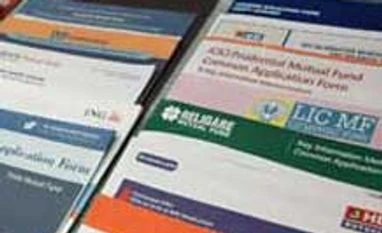The study has considered growth in AUM since 2010-11 to 2012-13. It says the growth rate in AUM in Bihar (excluding the capital city of Patna) was 24.6 per cent, the highest among these states — also comprising Jharkhand, Madhya Pradesh, Odisha, Rajasthan, Uttar Pradesh.
Interestingly, this is higher even than of Gujarat. Gujarat’s overall AUM growth was 8.6 per cent but when Ahmedabad was taken out, the growth drastically fell to a mere 1.9 per cent. However, overall AUM growth in Bihar is only 5.5 per cent, among the least.
“Two areas where we had expected growth to occur was Bihar and Gujarat, given the high economic growth these two states have experienced over the past five to 10 years,” said the report.
The study has computed the compounded annual growth rate (CAGR) for states twice. Once for the overall state and once after taking out the state capital, as the capital district would tend to crowd out the AUM growth in other districts. The growth in AUM for overall Bihar was 5.5 per cent, below those of Uttar Pradesh, Rajasthan, Jharkhand and Odisha. However, once the capital city is excluded, Bihar comes on top.
The report says such a rise in growth could be mainly because of a low base. According to it, even a small addition in AUM in smaller districts leads to a large percentage in growth.
Further, the study’s findings suggest the highest growth is in areas with the least AMC presence. Most of the places with growth of 75 per cent or more is in parts of central India, Haryana, Himachal Pradesh and Bihar.
Sikkim witnessed the fastest growth in AUM, at a whopping 140 per cent, followed by Manipur (94.5 per cent). Arunachal Pradesh and Puducherry were the bottom, with declines in AUm growth of 18.1 per cent and 7.8 per cent, respectively.
The report, titled ‘Penetration of mutual funds in India: Opportunities and challenges’, is co-authored by Rajesh Chakrabarti, executive director, Bharti Institute of Public Policy and on the faculty of Indian School of Business, Mohali; Sarat Malik, joint director, Sebi; Sudhakar Khairnar, assistant director, Sebi, and Aadhaar Verma, research associate at Bharti Institute, ISB.
)